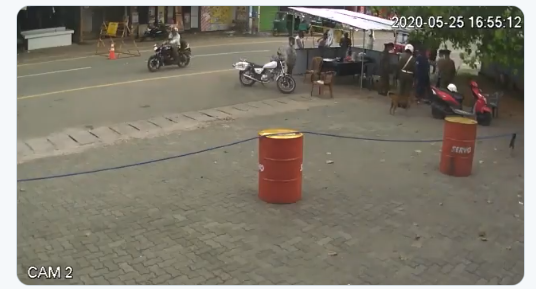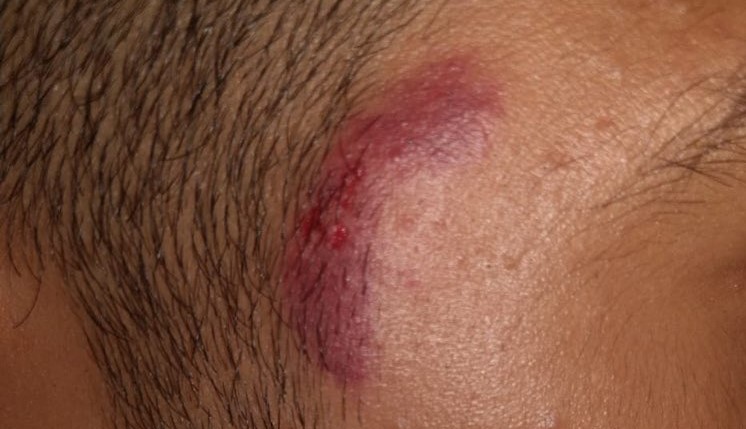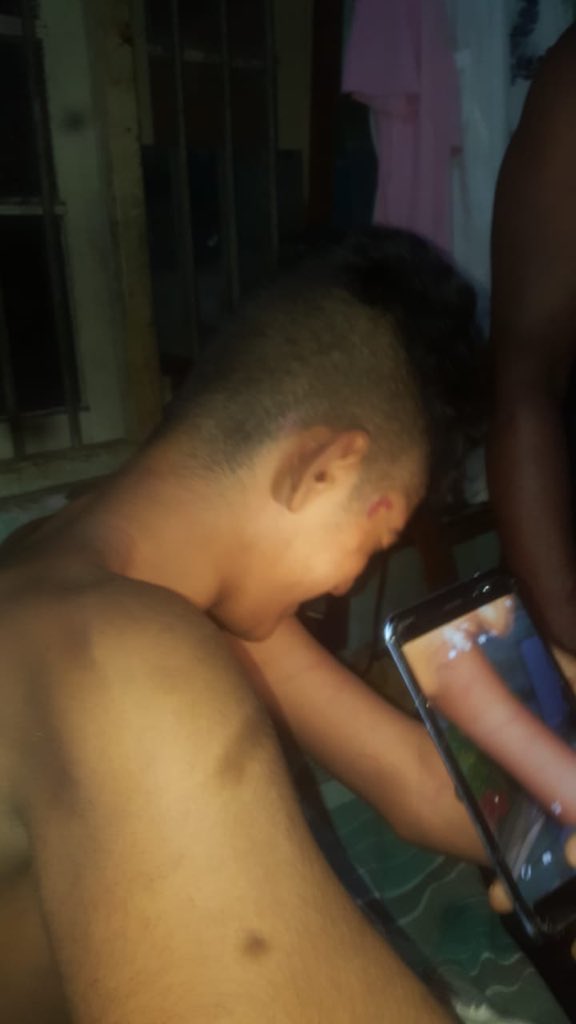SRILANKA: THE BRUTAL POLICE ASSAULT ON THARIQ AHAMED, A 14 YEAR OLD AUTISTIC BOY – ALI ZAHIR MOULANA

 04/06/2020
04/06/2020The news of the brutal assault by police on Thariq Ahamed, a 14 year old autistic boy of Dharga Town, Aluthgama is shocking and the prejudice that ensued after by the Police and the JMO needs to be exposed. Thariq was diagnosed with autism spectrum disorder since he was 4 and his development has been hindered by it since. Today, he has the capacities of a 6 year old child.

On the 25th of May, while curfew was imposed, Thariq had wandered out of his house on his bicycle and had ventured by the Ambagaha Junction in Dharga Town where there was a police checkpoint manned by 6-7 policemen. He was first stopped and accosted by a policeman in civvies, and pushed violently off his bicycle. Thariq, being autistic, naturally was not able to effectively communicate who he was and what he was doing there. Further according to his father, he was visibly terrified and disoriented. As he was pulled to his feet, another 5 policemen walked up and started brutally assaulting him, including slapping him across the face and blows to his head and torso. He was then dragged across the road towards the checkpoint and a nearby petrol station where another 2 civilians who stopped in a three-wheeler also joined the police in assaulting him.
All the while he was sobbing unintelligibly, given his circumstances which further infuriated the police. His hands were then tied behind his back as he was trying to struggle free, and then tied against a post under a tree, by the checkpoint. Several passers-by who stopped to witness the onslaught included a man on a motorcycle who knew Thariq and his father who thereafter proceeded to immediately fetch his father and bring him to the checkpoint. When the father arrived, he immediately rushed to his son and pleaded with the officers to release him explaining his son’s medical disorder and condition.
The officers there then verbally abused the father derogatorily and upon realizing that this child was in fact mentally ill, allowed the father to take his son away after forcing the father to agree that the fault was his in letting his son out of the house, in a bid to cover it up. Thariq suffered a cut on his head, and several on his back and arms, along with several bruises all over his body where he was assaulted by at least 8 grown men. The father, out of fear of reprisal from the police, was apprehensive to take Thariq to hospital that day as he was threatened by the police. Thariq meanwhile was terrified and was fearful to let anyone come near him immediately after the attack, and remains that way to this day.

After pressure from those who heard about the attack, the father proceeded to the local police station to file a complaint He was told there that the mistake was his in letting his son leave the house and no further action was taken. The father then proceeded to the Assistant Superintendent’s office, who was in charge of that area police division. While they took down a written complaint there it became obvious that no action would be taken. Thereafter, through the assistance of others the father was able to bring it to the attention of the Deputy Inspector General of the Kalutara district, who then passed along instructions for the boy to be medically examined and then take action accordingly. Thariq, his father and another policeman then went to meet the Judicial Medical Officer (JMO) at the Nagoda Hospital in Kalutara. Upon examining the boy, the JMO then passed on vile comments to the policeman asking him “why did you bring him here? He should be sent to Angoda. His kind (Muslims) are the reason why we are all wearing masks today. He deserved this and they should all be punished. I will show them.”
The JMO proceeded to refer Thariq to the psychiatrist at the hospital recommending that the boy be institutionalized at the National Institute of Mental Health in Angoda, as he had not taken his medication for several weeks. However, the JMO did not ask Thariq nor his father whether or not he had taken his medication. To their luck, the consultant psychiatrist happened to be the doctor who Thariq has been seeing for years, and as he was well aware that Thariq had been taking his medication regularly, and had been coming to him for clinics for years. Thereafter, he was prescribed his usual medication and released from the hospital and sent home. Since that time, there has been minimal reporting back from the police, in an obvious attempt to cover-up the incident but the father and others have managed to spread this story especially with the help of the CCTV footage of the incident.
It is important to note here that police brutality has been common in Sri Lanka for a while. It is only now, with the advent of social media and other technology that the police too have become more aware and are attempting to curtail such violence. However over the lockdown period imposed over last few months we have witnessed several incidents of police brutality against curfew violators islandwide. Thariq is all but one such incident, highlighted primarily because of his mental health & innocence Racial profiling like in this incident with the JMO, is also another serious infliction plaguing our country and needs to be brought to light. There are hundreds if not thousands of similar cases of injustice amongst innocent people who have been subject to discrimminationon the grounds of race, religion and ethnicity in our country.
While we raise our voices against police brutality and racial profiling in the United States, it is important that we highlight and question the rampant injustices happenning within Sri Lanka as well.
Violence & racism occurring incessantly are precursors to a failed state, and if we are unable to give the unfortunate victims a voice then we are just as guilty as the perpetrators themselves. We see it on display in Sri Lanka and while we raise our voices for those persecuted in America, it is unto us to peacefully raise our voices against injustice, inequality and violence in our land too.
Just visited Thariq in Aluthgama. It’s a real shame that a child w. special needs had to experience such trauma & police brutality.
Despite it all, Thariq was exceptionally cheerful- a testament to his innocence. It truly was a pleasure to spend time with him. #JusticeForThariq
363 people are talking about this
(compiled from 22 tweets sent by Ali Zahir Moulana @alizmoulana for videos please visit his tweeter account.)







No comments:
Post a Comment
Note: only a member of this blog may post a comment.